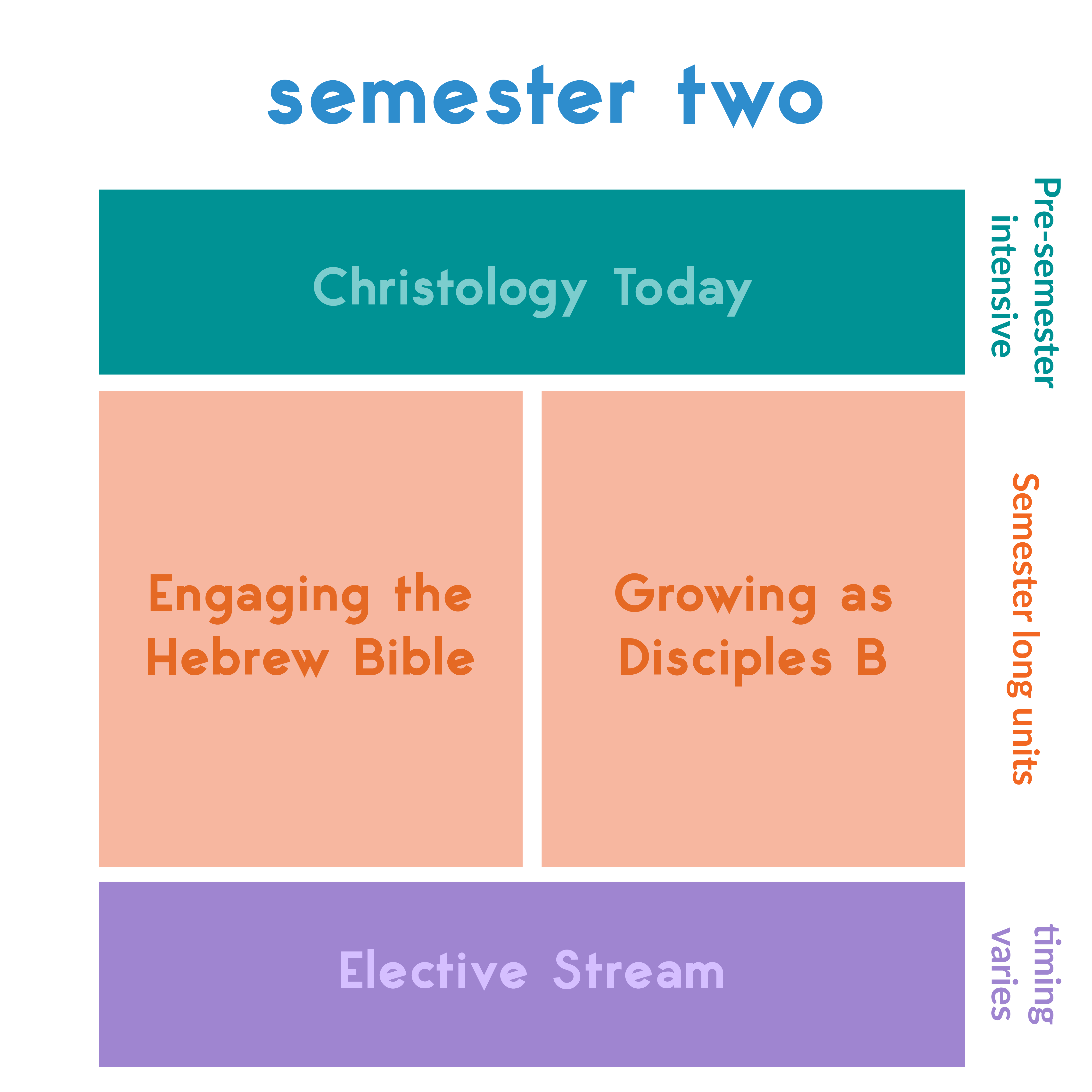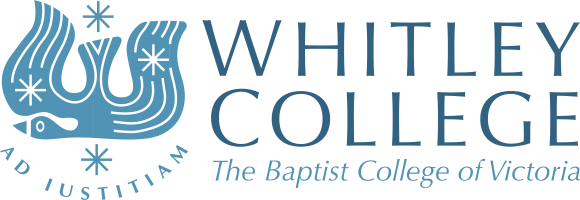

core units
These units are a compulsory requirement of the build. program.
As an introduction to, and survey of, Christian theology, examine several sources of Christian belief and how theological ideas have impacted society. Reflect on how your own formation has been influenced by the different themes.
Experience the insights from different ways of reading and analysing selected New Testament texts, with a focus on interpreting the text for faith, life, and ministry.
The first of two units that introduces the frameworks to reflect theologically on an area of your life, in an integrated learning environment. Explore the basics of integrating learning from theological study into an observable context.
Explore how Jesus has been portrayed in the Bible over the years and how he is viewed in films, fiction, and the media today.
Consider the history and diversity of the Old Testament, particularly in relation to key themes like creation, covenant, government, suffering, ethnicity, and hope.
As the second of two units, investigate frameworks to reflect theologically on an area of your life, in an integrated learning environment. Extend your experience of integrating learning from theological study into an observable context.
elective streams
Students are required to undertake one elective per semester.
In the first of two units, reflect on your own formation as a missional leader, and examine the factors that contribute to your formation and continued development as an active leader within your local church or organisation.
Investigate factors that contribute to developing other leaders and leadership outcomes. Explore how these factors contribute to developing leaders in a local setting through active participation in a placement.
Witness
Examine Christian mission from the perspective of the Missio Dei (mission of God), with emphasis on biblical foundations. Explore how theology, history and culture have informed modern mission theory and practice.
World Christianity as Missio Dei
Explore emerging trends in world Christianity and how missiology is adapting to the changes influenced by urbanisation and globalisation. Consider a range of topics in post-Christian contexts.
Culture
Church, Culture and Hermeneutics I: Identity and Belonging
Develop skills in biblical hermeneutics and explore the role of culture in shaping identity and belonging to Church. Learn how to read and understand culture and reflect on your own hermeneutical practice to explore communal identity, belonging, intercultural and intergenerational community.
Church, Culture and Hermeneutics II: Beyond Ourselves
An extension to Church, Culture and Hermeneutics, exploring the impact of cultural hermeneutics on the church’s response to relevant social issues. Understand how cultural perspectives are formed, and discover the multicultural and intercultural church models.n had in class.

enrolment details
key dates
- 4 February 2022: applications close for build.
- 14 February 2022: first build. unit commences
- Core build. program dates:
- Summer intensive: 14-18 February (5 day residential intensive)
- Semester one: Tuesdays 22 February – 24 May (with break for Easter)
- Winter intensive: 13-17 June (5 day residential intensive)
- Semester two: Tuesdays 25 July-25 October (mid-semester break)
- Elective program dates: see page 6 of the 2022 timetable
eligibility
Admission to this course requires prior completion of the equivalent of the Victorian Certificate of Education (VCE); probationary admission is available to mature age applicants who have not completed the VCE. All applicants (domestic or overseas) must also meet the English language admission requirements of the University of Divinity.
fees
build. participants will be enrolled into a Diploma in Theology through Whitley, a teaching college of the University of Divinity. Students are required to pay the tuition fees set by the University. The build. tuition fees for 2022 will be $1764 per unit. If you study full-time, taking all 8 units of the Diploma in Theology, total tuition fees in 2022 will be $14,112. Fees must be paid in full before the start of each semester or borrowed through the Australian Government FEE-HELP loan scheme.
University tuition fees cover tuition, library usage, and student facilities. Some additional costs may be charged for particular build. program activities, such as food and accommodation for residential intensives. FEE-HELP cannot be used for any additional build. program costs.
Eligible domestic students (Australian citizens; holders of permanent humanitarian visa) can fund tuition fees through FEE-HELP, provided they are taking the unit for credit as part of an overall accredited award course, such as the Diploma in Theology. Students who defer the payment of fees through the FEE-HELP loan scheme are not required to begin repaying the accumulated loan debt until their taxable income rises above the compulsory repayment threshold.
Please see www.studyassist.gov.au for more information.



 by Impressum
by Impressum